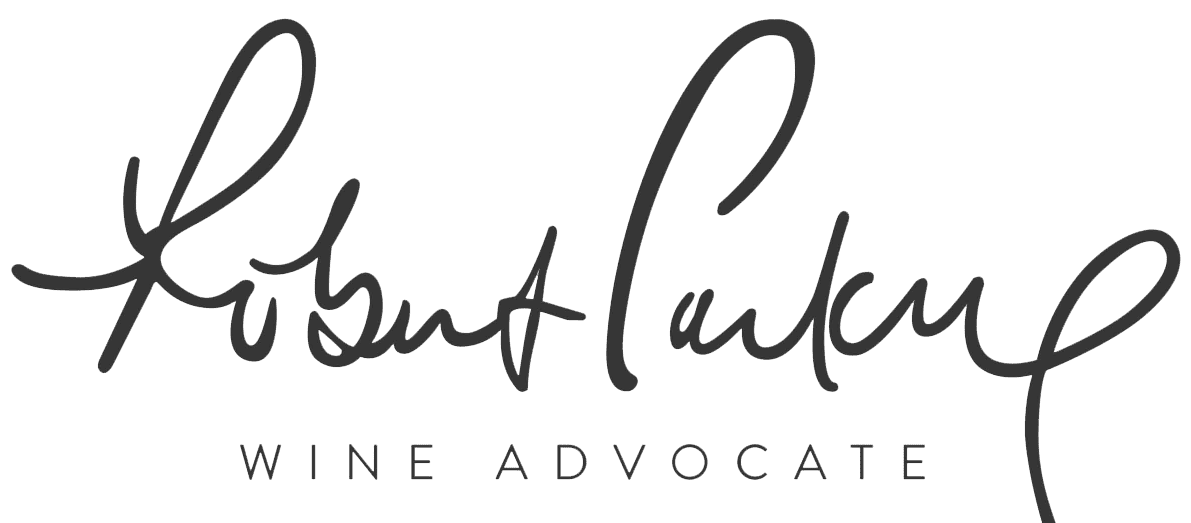At one time or another, you may have noticed that numbers play a big role when prominent wine critics rate what they sample. Traditionally, a score between the 85-100 range is deemed acceptable to represent the skill of the winemakers and their products overall. Theoretically, buyers and enthusiasts can generally assume that the best possible score is 100.
Like many of the pre-eminent names in the media that provide news coverage on the culture surrounding wine and spirits, we utilize the same comprehensive rating system to determine the grade of products that are currently for sale.
Our Director of Fine Wine, Ken Irving Jr., oversees and finalizes the ratings on the larger majority of the items offered in store and online. However, we always include ratings from Robert Parker, Wine Spectator and other influential figures on a regular basis.
Let us explain the wine ratings you see on the pages of our online store.
We keep getting questions like who is Robert Parker? and What is the Wine Spectator? and What are all those points and abbreviations I see? So we have put together this page to explain what we show you on many of our wines to help you decide whether you might like them or not.
For every wine we carry, we try to find reviews that our customers can trust from reliable sources. It's important to us that you be as informed as possible about the wines we have in our shop. It's not always possible to find a review in these publications because there are so few publications and so many wines!
If we find a review, we put the source and score right after the name of the wine (for example WS90 means Wine Spectator 90 points) and the written review, if any, below, in an explanatory section. In the sections that follow are explanations of who is Robert Parker (The Wine Advocate) is, what are the major wine rating magazines, and a bit about each of their rating schemes (which are very similar).
Robert Parker - The Wine Advocate (our RP & WA rating abbreviations)
We use ratings from several major sources and one or two minor ones. First and foremost is Robert Parker, while going to college, formed a tasting group of students who were interested in wine. They all started to rate the wines they tasted. That's when they realized that just because a wine costs alot of money or has a great reputation is no guarantee that it will be great in a particular vintage (year). After college, he continued on with his tasting and realized what a gift he had for analyzing the various flavor components of wine. He has become the most trusted source of tasting and rating wine the world over. He now publishes The Wine Advocate which comes out six times a year and contains wine ratings and stories.
Parkers Rating System is called a 50-100 point quality scale. He emphasizes that "the numerical ratings are utilized only to enhance and complement the thorough tasting notes" that he writes for each wine. He also equates 90-100 to an A given for outstanding effort, 80-89 to a B given in school for very good, 70-79 represents a C or average mark, and below 70 is a D or F.
(RP/WA) Robert Parker - The Wine Advocate Rating Scale: - 96-100: An extraordinary wine of profound and complex character
- 90-95: An outstanding wine of exceptional complexity and character
- 80-89: A barely above averge to very good wine displaying various degrees of finesse and flavor as well as character with no noticeable flaws
- 70-79: An average wine with little distinction except that it is soundly made
- 60-69: A below average wine containing noticeable deficiencies
- 50-59: A wine deemed to be unacceptable
Wine Spectator Magazine (our WS abbreviation)
Next to Robert Parker, the next most trusted source for wine ratings, wine news, restaurant wine list ratings, wine travel information, etc. is the bi-weekly Wine Spectator.
Their editors palates' are trusted almost as much as Robert Parker, except that you have ratings from a group of tasters whose opinions can be different from one to another. But they have separated eight editors geographically so that if you are looking at Australian wines, for example, the same editor will be tasting most of the wines.
Their 100-Point Scale, like the rest, really only starts at 50 and goes to 100
(WS) Wine Spectator Rating Scale: - 95-100: Classic; a great wine
- 90-94: Outstanding; a wine of superior character and style
- 85-89: Very Good; a wine with special qualities
- 80-84: Good; a solid, well-make wine
- 70-79: Average; a drinkable wine that may have minor flaws
- 60-69: Below average; drinkable but not recommended
- 50-59: Poor, undrinkable; not recommended
The Wine Enthusiast Magazine (our WE abbreviation)
The experts at The Wine Enthusiast taste and rate a large quantity of wines in their monthly issue.
(WE) Wine Enthusiast Rating Scale: - 98-100: Classic; The pinnacle of quality
- 94-97: Superb; A great achievement
- 90-93: Excellent; Highly Recommended
- 87-89: Very Good; Often good value; well recommended
- 83-86: Good; Suitable for everyday consumption; often good value
- 80-82: Acceptable; Can be employed in casual, less-critical circumstances
Vinous Media (Antonio Galloni, Steven Tanzer (our VM, AG, ST abbreviations)
A critically acclaimed website and journal followed by wine experts and wine lovers in 28 countries.
Vinous Media Rating Scale: - 95-100: Extraordinary
- 90-94: Outstanding
- 85-89: Very Good to Excellent
- 80-84: Good
- 75-79: Average
- 70-74: Below Average
- < 70: Avoid
STAFF RATED (our WD abbreviation)
When we can't find a review and we get to taste the wine, we include the review of our in-house wine experts and staff. We strive to supply the best bottles that are offered in the market today. We spend the time to taste new varietals and regionally unique wines to better serve you with honest and helpful reviews that will provide you with the best service when picking out selections.
Reviews from all of these publications can be relied upon to tell us what those experienced palates think of a particular wine. We don't always agree with them and sometimes we taste something that we feel just doesn't deserve the high or low rating that they give it. if we taste something and don't agree we'll tell you about it in our tasting notes. We have to rely on their judgment because we just never get to taste all those wonderful wines out there. Our job is to bring you those wines at the best prices we can and that is what we concentrate on.
|
 |
...




















